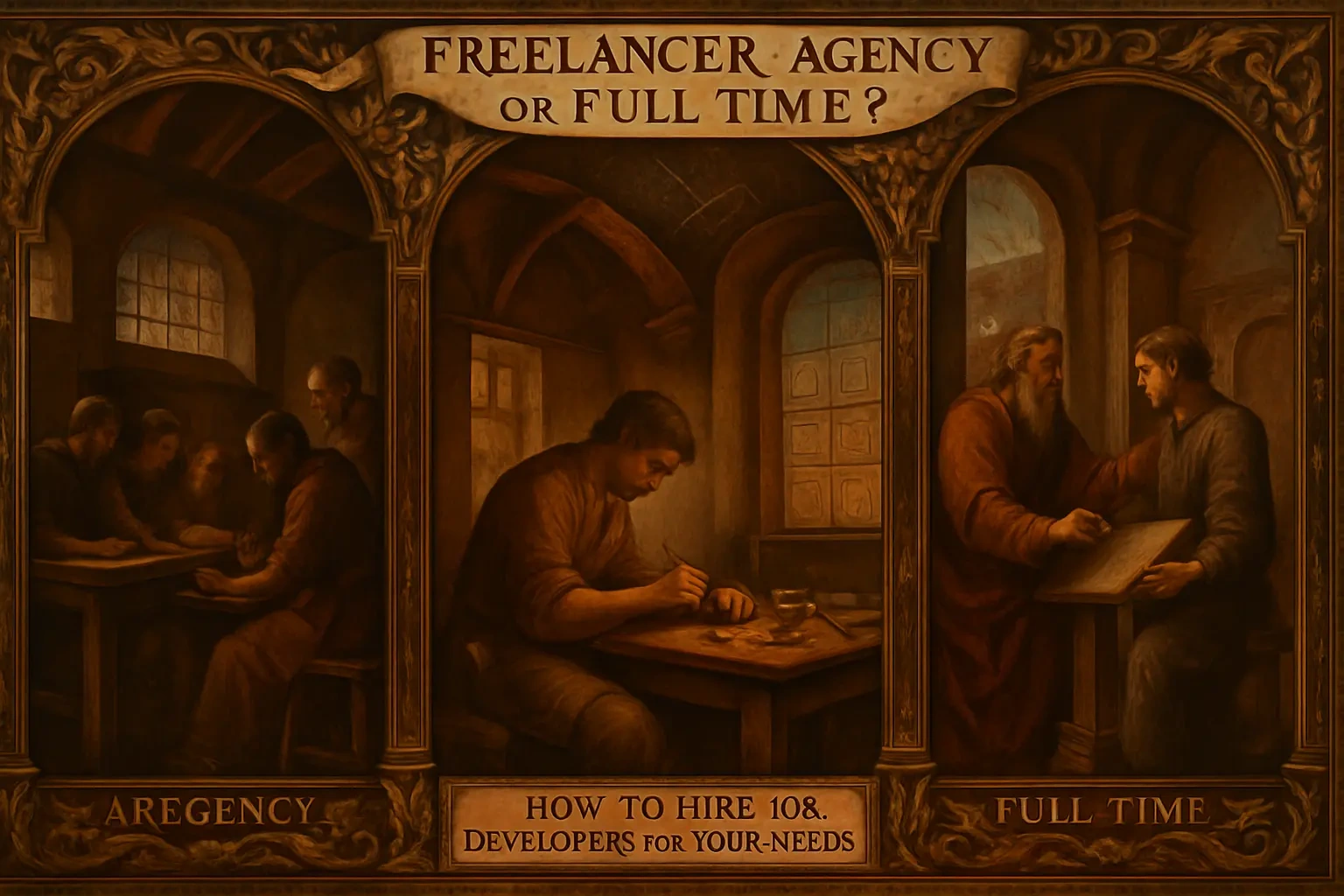Freelancer, Agency, or Full-Time? How to Hire iOS Developers for Your Needs

Freelancer, Agency, or Full-Time? How to Hire iOS Developers for Your Needs
The Freelance iOS Developer: For Agility and Specialized Skills
Pros: Cost, Flexibility, and Speed
Cons: Reliability, Management, and Scalability
The Development Agency: For a Comprehensive, Full-Service Approach
Pros: Expertise, Structure, and Reliability
Cons: Higher Cost and Less Flexibility
The Full-Time Employee: For Long-Term Vision and Deep Integration
Pros: Dedication, Company Knowledge, and Long-Term Stability
Cons: Higher Overall Cost, Recruitment Challenges, and Overhead
How to Choose: Key Factors to Consider
Project Complexity and Scope
Budget and Financial Resources
Timeline and Speed-to-Market
Long-Term Maintenance and Support
Making Your Decision
References
Freelancer, Agency, or Full-Time? How to Hire iOS Developers for Your Needs
The Freelance iOS Developer: For Agility and Specialized Skills
Pros: Cost, Flexibility, and Speed
Cons: Reliability, Management, and Scalability
The Development Agency: For a Comprehensive, Full-Service Approach
Pros: Expertise, Structure, and Reliability
Cons: Higher Cost and Less Flexibility
The Full-Time Employee: For Long-Term Vision and Deep Integration
Pros: Dedication, Company Knowledge, and Long-Term Stability
Cons: Higher Overall Cost, Recruitment Challenges, and Overhead
How to Choose: Key Factors to Consider
Project Complexity and Scope
Budget and Financial Resources
Timeline and Speed-to-Market
Long-Term Maintenance and Support
Making Your Decision
References
Posted Jul 6, 2025
Confused about whether to hire a freelance iOS developer, a full-time employee, or an agency? We break down the pros, cons, and costs of each model.









